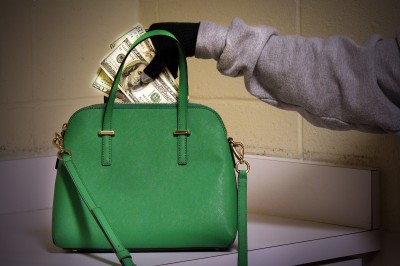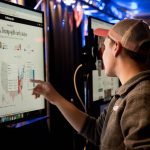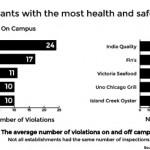
With a string of recent scam and fraud reports on campus, the Boston University Police Department has noticed a trend this semester, amounting to more cases of scam and fraud during the fall than usually seen during an academic year.
“There might be a dozen [cases] in the whole year, but this year is an aberration because of the amount of people affected in a short amount of time,” said BUPD Detective Lt. Peter DiDomenica. “With the nature of technology now, I don’t think this trend will reverse. [With] the availability of wire transfers and prepaid cards … I see the trend increasing.”
Scott Paré, deputy director of public safety at BUPD, said crimes of this nature happen because criminals take advantage of “kind-hearted students who want to do the right thing” and instill fear in them.
“One [case] is the well-dressed gentlemen who tells a long tale of woe [about how] his car just broke down and he needs money for a cab to get to an appointment,” he said. “[He] tells the student he’ll pay them back with no intention at all. We’re looking into that closely, and hopefully we’ll [make] charges at some point.”
Another recent scam BUPD has seen occurs over the phone. The caller poses as an Internal Revenue Service official and demands money through a prepaid card called Green Dot MoneyPak, Paré said.
“No government official to ask you, especially over the phone, to pay money to get out of something,” he said. “Officials don’t specify to pay with a Green Dot MoneyPak obviously because it’s untraceable. That should be a red flag.”
Because those making the scam phone calls may be operating from outside the county, BUPD plans to work with the U.S. Federal Bureau of Investigation and the U.S. Secret Service, Paré said.
However, this collaboration between BUPD and the Secret Service is not a new one in investigating scam and fraud cases. In October, the two entities worked together to launch an investigation into a string of credit card scam reports on campus, The Daily Free Press reported. Approximately 20 Chinese international students reported their credit card information stolen within the span of a few weeks, DiDomenica said.
DiDomenica said prevention is the key to addressing fraud and scam before they become major issues.
“If we see a pattern, we get the word out and educate the community by posting on social media to prepare people,” he said. “Once they [cases] happen, the chance of prosecuting is slim because of anonymity with PayPal and Green Dot MoneyPak that [are] hard to follow.”
Several students said they are concerned about scams and fraud on campus and know the necessary measures they must take to protect themselves.
Madeline McCormick, a freshman in the College of Arts and Sciences, said she is usually able to see the signs of fraud.
“I would be suspicious, and part of me actually feels pity for these people for what they do, which is so sad,” she said. “College students are definitely an easy target. The more inexperienced you are, the more likely you are to be a victim of fraud.”
Lindsey Constantine, a junior in the College of Communication, said she has received fraudulent calls similar to the cases BUPD has seen.
“I actually received phone calls and voice mails from the IRS telling me that I was in debt and that I had not paid my bills. They kept calling me for over a month, until I told them that I was a minor, and that’s when they stopped,” she said. “It’s crazy how fast your phone number can get into the wrong hands.”
Edgar Trevino, a student in the Metropolitan College, said he was not aware that scamming was a problem at BU.
“BU should take action, maybe offering some seminars on how to make fast decisions in these situations,” he said. “Scams are random and do not target a particular college grade such as freshmen. [In] this the case because scammers often times have a plan figured out all along, and it does not matter who falls for it.”
BUPD advises students to remain aware of their surroundings and be wary of situations with strangers, DiDomenica said.
“If it [the situation] sounds too good to be true, it’s probably too good to be true,” he said.
“You have to realize that bad people are out there, and you can’t accept everything at face value. You need to question things and be a bit of a skeptic and be willing to say no.”
Gherardo Astaldi contributed to the reporting of this article.
Vice Chairman and archives keeper for The Daily Free Press Board of Directors. Former news editor. I like data, politics, and higher education, but will write about anything.




